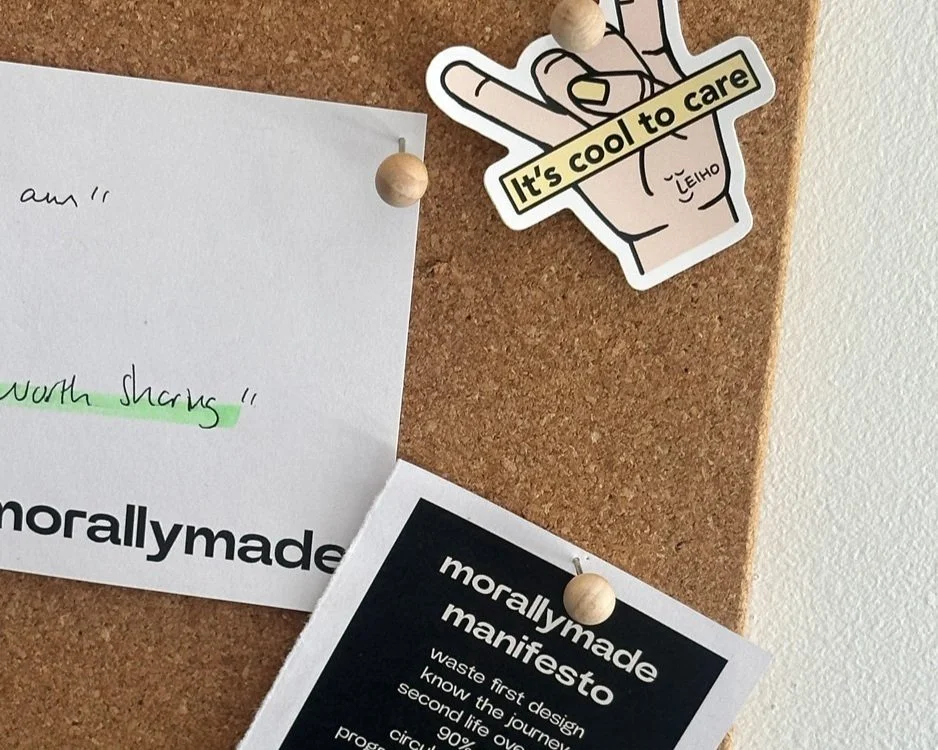It started with a manifesto
a manifesto to design by
We regularly refer to our Manifesto—a set of principles we return to at the start of each new brief. The company name came from this manifesto.
We wrote it when dreaming of starting a design and build business, while grappling with our passionate but conflicted stance on sustainability. We wrestled with the argument that if we wanted to be truly sustainable, we wouldn't make anything at all.
So we established rules and practices to help us act as responsibly as possible within our circumstances. If followed, the manifesto ensures our products and projects are Morally Made.
Every brief should align with our manifesto in some way. When a project conflicts too much with our values, we step away—and we have. We hate turning down fun, interesting projects, but we struggle to get excited about work that carries an unnecessary carbon and waste cost.
We welcome briefs without sustainability KPIs, trusting our manifesto will make the end result more sustainable regardless.
The manifesto has evolved since we started, and it will continue to change. For now, it guides us well.
the morallymade manifesto
waste first design
Where we can, we hero material from waste streams. We prioritise minimising waste at the design stage, and we are not the reason for avoidable waste.
know the journey
Identify the origin of each raw material before we work with it, to ensure it is responsibly sourced. We also make a plan for where it’s going at the end of its life.
second life over first
This isn’t upcycling, its retaining value. Be resourceful, prioritise reclaimed or recycled materials where is it safe and suitable to do so.
circular practices
Cradle to cradle mindset, designing so that we can repair, replace, reuse, modularise & remanufacture components. Life safety is the only override.
90% rule
Each project has a target of compromising of 90% recycled, recyclable, reusable, renewable or waste-derived materials.
positive impact
Pre & post post project assessments of our impact, ensuring we give back what we take, and offset what we incurred, then some.
be responsible
Think, then think again. We all know what the right thing to do is really.
progression, not perfection
Reducing waste has to be more important than ‘perfection’, mistakes happen and irregularities occur, compromises need to be welcomed in the interest of sustainability.

